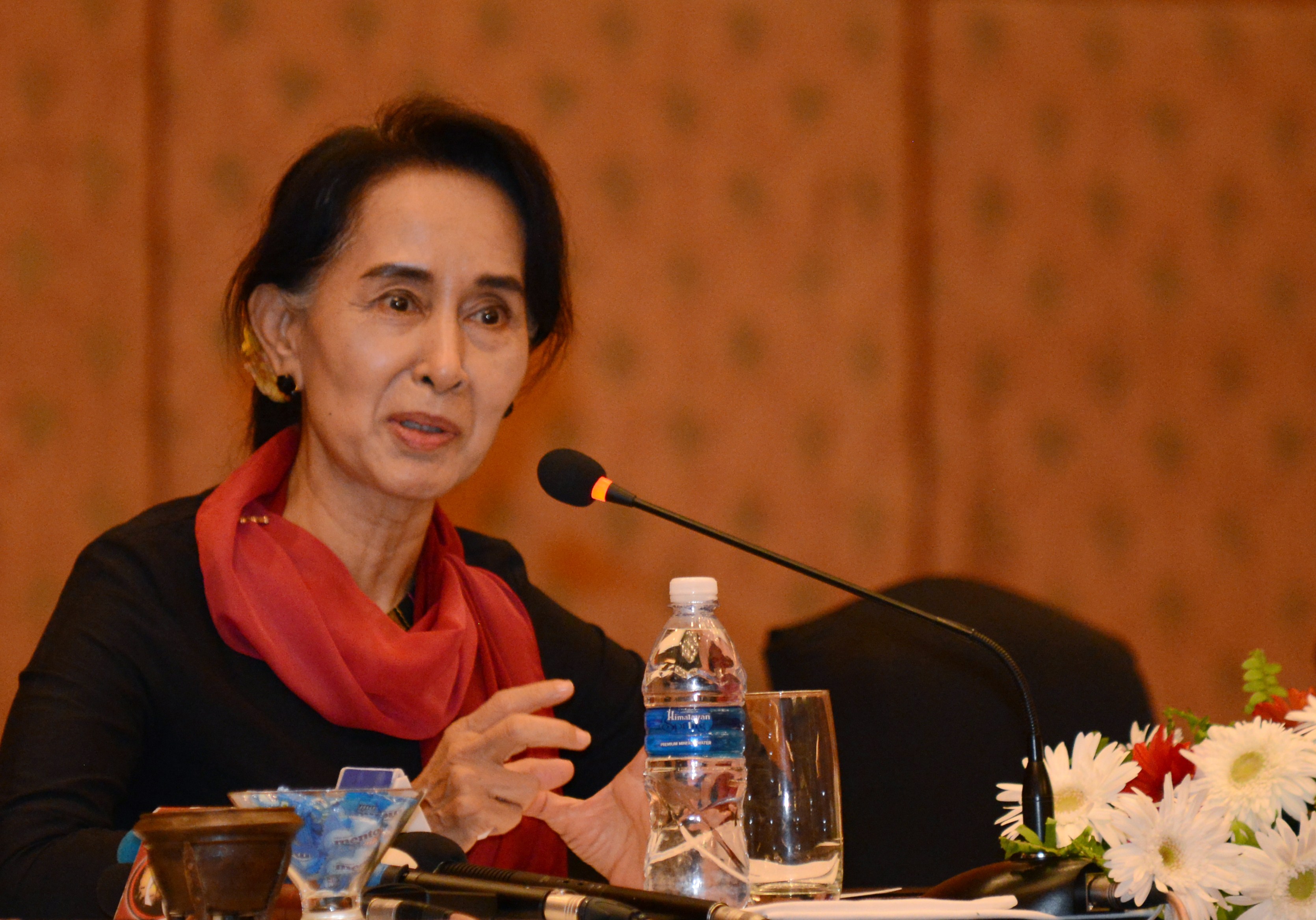
Yangon: Aung San Suu Kyi, whose post as Myanmar state counsellor makes her de facto head of state, vowed on Monday to build a democratic federal union including ethnic minorities, but did not mention any group by name.
The address by the 1991 Nobel Peace Prize winner, marking Myanmar's New year, followed a US government agency call on Myanmar to end discrimination against ethnic and religious minorities and do away with abusive policies against the mostly stateless Rohingya.
The country has been plagued by insurgencies by ethnic minority groups since independence from Britain in 1948.
The Rohingya are widely maligned in Myanmar, where they are seen as illegal immigrants from Bangladesh - including by some in Suu Kyi's party.
Myanmar has denied discrimination against the 1.1 million Rohingya, most of whom live in apartheid-like conditions.
Suu Kyi has taken a cautious approach on the Rohingya issue, drawing criticism from some rights groups overseas, in spite of her status as a human rights icon.
"Being democratically elected by the people, our government is responsible for all citizens, treating everyone equally with love and compassion," Suu Kyi said in her speech.
"That's why we give a high priority to national reconciliation. We'll continue to build a genuine federal democratic union, longed for by the entire people."
Suu Kyi, who led her National League for Democracy (NLD) party to a sweeping election victory last year, said her government valued a ceasefire initiative started by the previous, semi-civilian government. The previous government signed a ceasefire in October with eight armed ethnic groups, the culmination of more than two years of negotiation.
"We'll continue to make efforts to include all the organizations we deem appropriate in order to achieve a complete ceasefire," Suu Kyi said.
Suu Kyi was barred from becoming president under the military-drafted constitution because her children are not Myanmar citizens. Myanmar's junta-era 2008 constitution has been a bone of contention between Suu Kyi and the military, whose relations will define the success of Myanmar's most significant break from military rule since the army took power in 1962.
Suu Kyi vowed to push for amendments to the constitution, although her power to change the constitution is handicapped by the military, which retains huge influence.